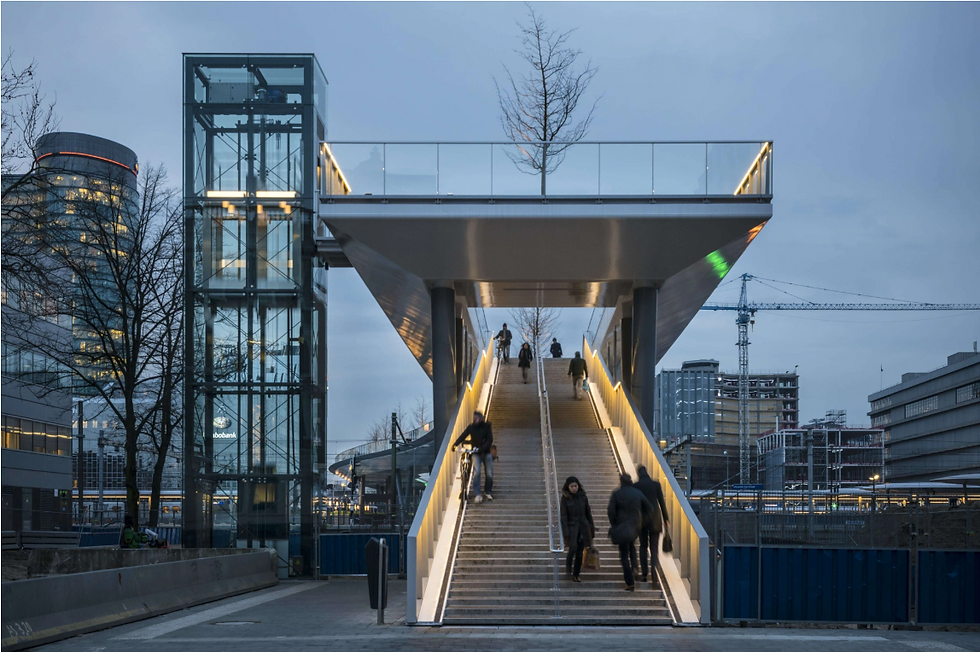The contrast between government and citizen
- TOPOS

- Dec 19, 2023
- 4 min read
Updated: Jan 22
Column by Pim Buijs
As I am writing this, the elections for the national government are in full swing. Election time is always a time full of contrast: one is liberal, the other conservative, she is for and he is against. Each party tries to distinguish themselves from the other. Not only do politicians talk about differences, the people are talking about them as well. These elections feel a lot different from the previous elections I have experienced. This is the case for me because of one particular subject that is high on the political agenda: a new way of governance.
The trust is the government has decreased the last couple of years, because of the gas extractions in Groningen, the subsidy affair and the ever-increasing amount of crises in our country. More and more people distrust the government so much that they stop actively participating in democracy; from deciding not to vote to even giving up their nationality in favor of being sovereign. More and more people feel that the government is opposed to the citizen, instead of standing next to them. These increasing tensions between government and citizens is also called vertical polarization. The contrast between government and citizens is increasing more and more, creating a feeling of us vs them. The collection of new politicians and the attention to this crisis of governance should help to mend the gap, according to politicians.
As a civil servant this is a very strange thing to see. On the one hand am I a citizen who believes that the previous government has made some serious mistakes, causing me to lose trust. On the other hand am I now a part of the government on a local level, for the municipality of Utrecht.
The reason I got into this line of work is to help people. This inner drive comes from my family, specifically my grandfather. He was a man who helped everyone he could without asking for anything in return. When he got buried, I found out how much he meant for a very diverse group of people, through his altruism. My parents are the same way, so you could say this way of being has been spoon-fed to me by multiple generations. When it was time to pick a study I stumbled onto spatial planning, and I realized that this was my way of helping others. Everyone uses the living environment, so by improving it I can help a large group of people.
During my master I did an internship with a commercial engineering consultancy. These consultancies almost exclusively work for the government. While I enjoyed working, something bothered me. When you work for a consultancy, you always work in projects. The frame of this project is decided by the client, in this case the government. There is some wiggle room, but only within the confines of the frame. Even though the consultancy will be critical of this frame, they have no direct influence on it. I was doing assignments where I did not agree with the framing, but I had no influence on it.
That is why I decided to, after finishing my studies, to work for the government. The government is the one making the frames, thereby deciding what happens with the living environment. When I started working for the municipality, I realized that the decisions are made by the head administrators, such as aldermen or ministers, who are politicians. They are responsible for the choices and consequences made, and have to represent them to the politicians in the house of representatives or the municipal council. My duty as civil servant is to advise my administrators to make the right choices. This adds a whole new dimension to my work. When you work at a consultancy, you advise the civil servants. As a civil servant, I am closer to where the real decisions are made. Although consultancies do important work, it was not the place for me.
Working for the government is a way for me to be closer to where change is made, to increase my impact. This allows me to play my part in regaining the trust of citizens in their government. There are a lot of hardworking people within the government who want the best for this country, the country they are citizens in. Unfortunately all the good words and intentions of the last decade were not in line with the actions of the government, and its consequences. These consequences, such as the many crises in the Netherlands, have driven citizens away from the government.
By working for the government, I feel that I can do something about this while making a positive impact on the living environment. Perhaps this is naïve of me, but I have not found a reason yet to doubt my belief. For those who have to make a choice in their career in the near future, consider working for the government; be the change you want to see. This way we can make the contrast between citizen and government less jarring.







Comments